
Gliva 40mg Tablet
Manufacturer
Mova Pharmaceutical Pvt Ltd
Salt Composition
Gliclazide (40mg)
Key Information
Short Description
Gliva 40mg Tablet is used to treat type 2 diabetes mellitus in adults by controlling blood sugar levels.
Dosage Form
Tablet
Introduction
Gliva 40mg Tablet is a medication used to manage type 2 diabetes mellitus in adults. It belongs to the sulfonylureas class and helps control blood sugar levels, thereby preventing serious complications such as kidney damage and blindness. It can be prescribed alone or with other medications and should be taken with food. Regular intake at the same time each day maximizes its benefits. Common side effects include indigestion and stomach upsets, and it can cause hypoglycemia (low blood sugar levels). It's crucial to recognize and manage hypoglycemia symptoms like sweating, dizziness, headache, and shaking. Avoid alcohol as it can increase the risk of low blood sugar. Consult your doctor if you have type 1 diabetes, diabetic ketoacidosis, severe kidney or liver disease, heart disease, thyroid disease, or hormonal conditions. Pregnant or breastfeeding women should seek medical advice before use. Regular blood sugar monitoring and blood tests for liver function and blood cell counts are recommended.
Directions for Use
Take this medicine in the dose and duration as advised by your doctor. Swallow it whole without chewing, crushing, or breaking it. Gliva 40mg Tablet should be taken with food.
How it works
Gliva 40mg Tablet is an antidiabetic medication that works by increasing the amount of insulin released by the pancreas to lower blood sugar levels.
Quick Tips
Take it shortly before or with the first main meal of the day (usually breakfast). Avoid skipping meals. Be careful while driving or operating machinery until you know how Gliva 40mg Tablet affects you. It can cause hypoglycemia (low blood sugar level) when used with other antidiabetic medicines, alcohol, or if you delay or miss a meal. Always carry some sugary food or fruit juice with you in case you experience hypoglycemic symptoms such as cold sweats, cool pale skin, tremor, and anxiety. Your doctor may check your liver function regularly. Inform your doctor if you develop symptoms such as abdominal pain, loss of appetite, or yellowing of the eyes or skin (jaundice).
Related Medicines

Glychek 40 Tablet
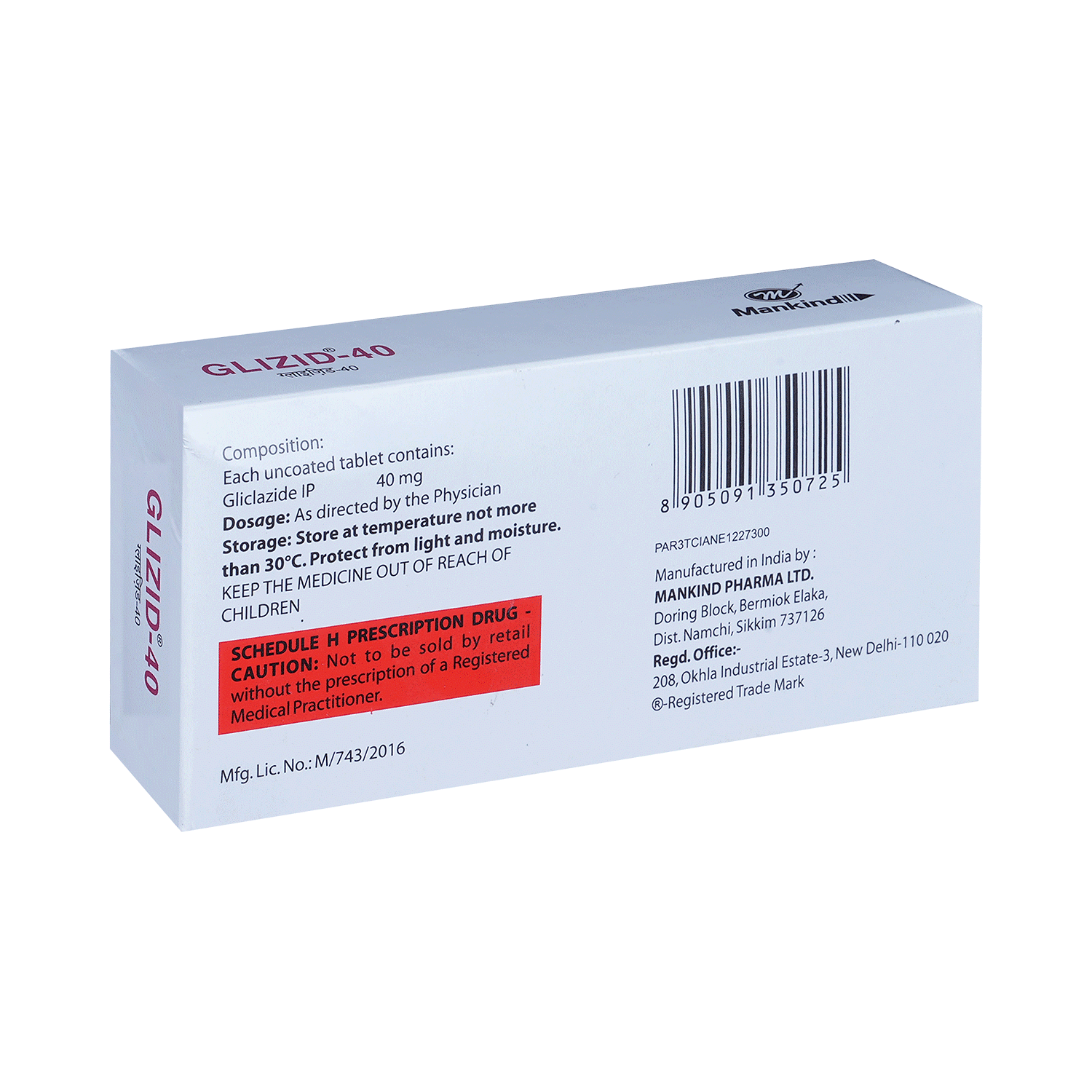
Glizid-40 Tablet
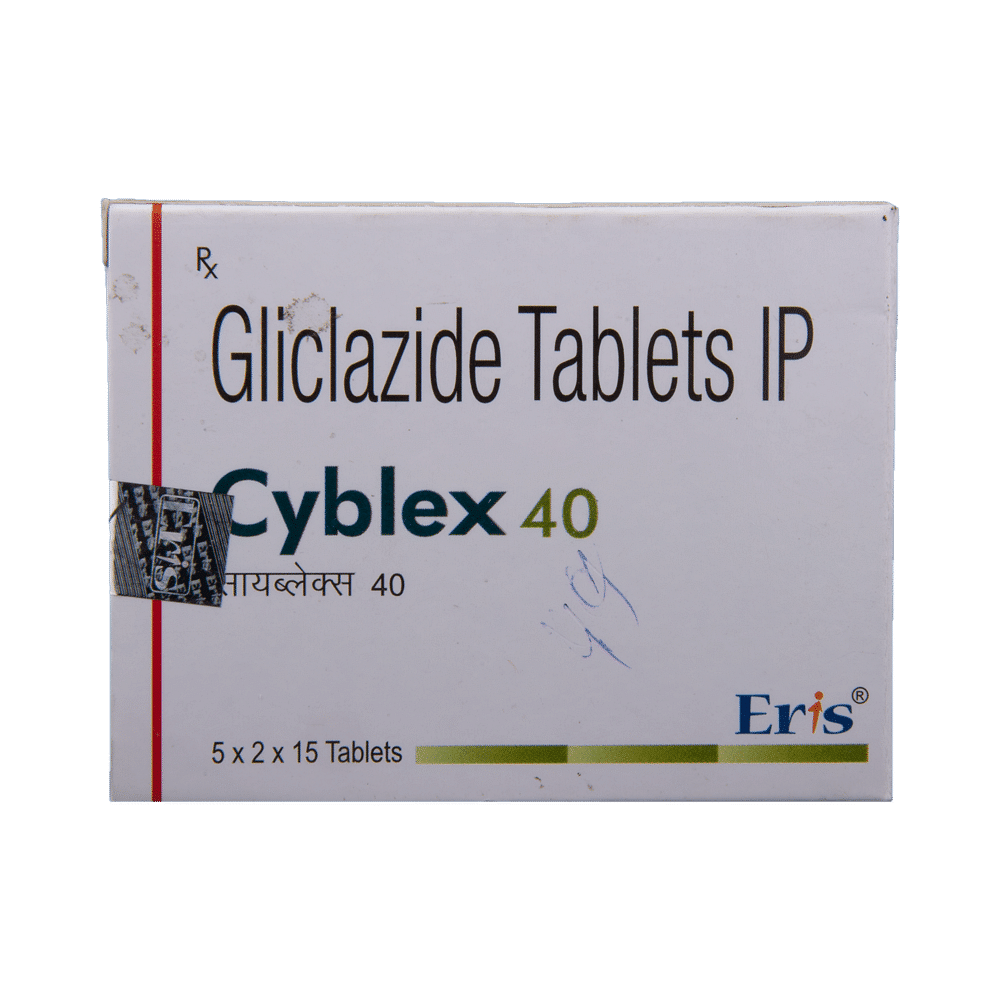
Cyblex 40 Tablet
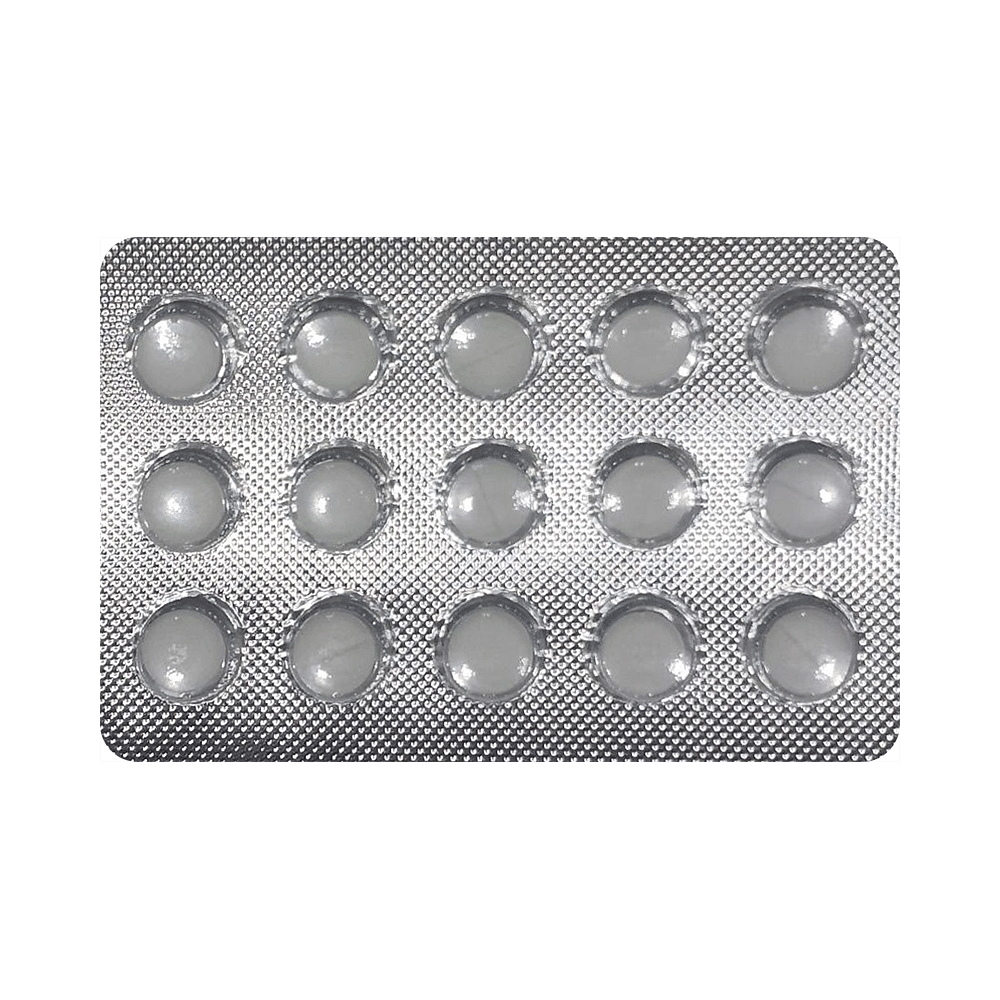
Glycinorm 40 Tablet
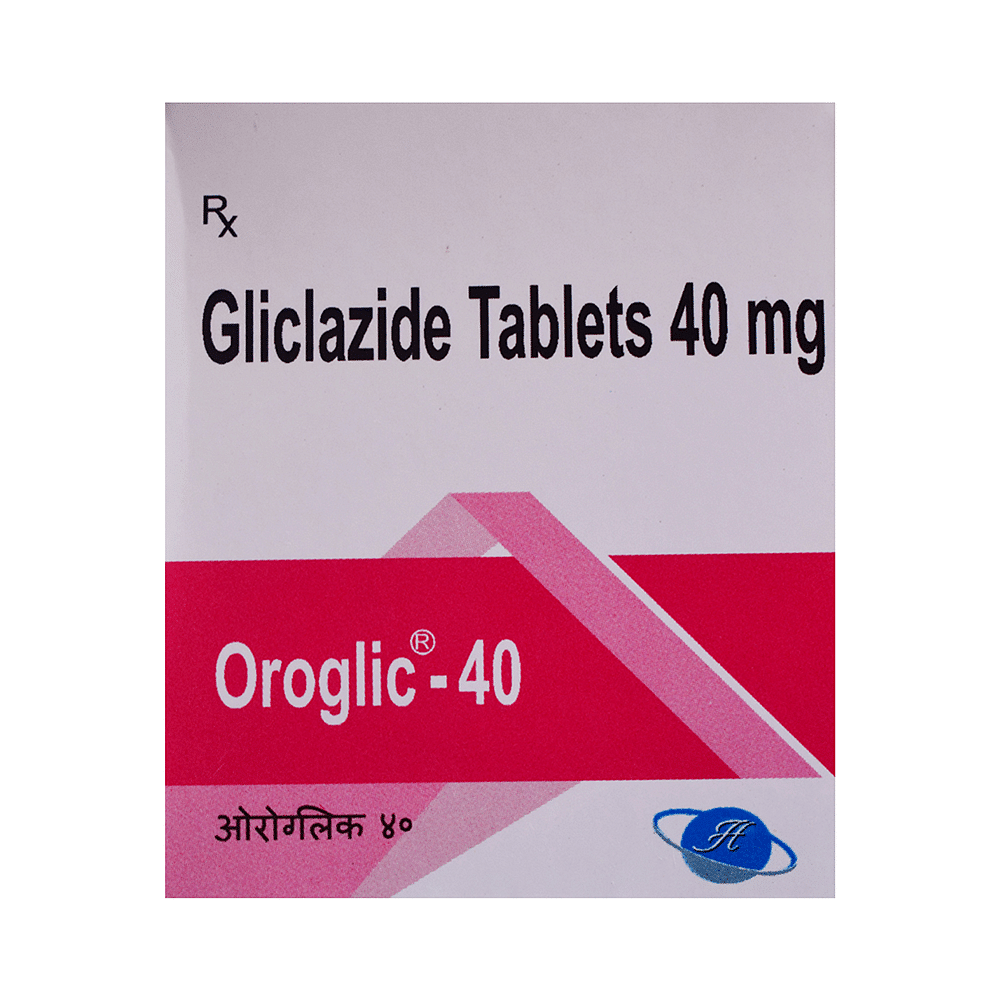
Oroglic 40 Tablet
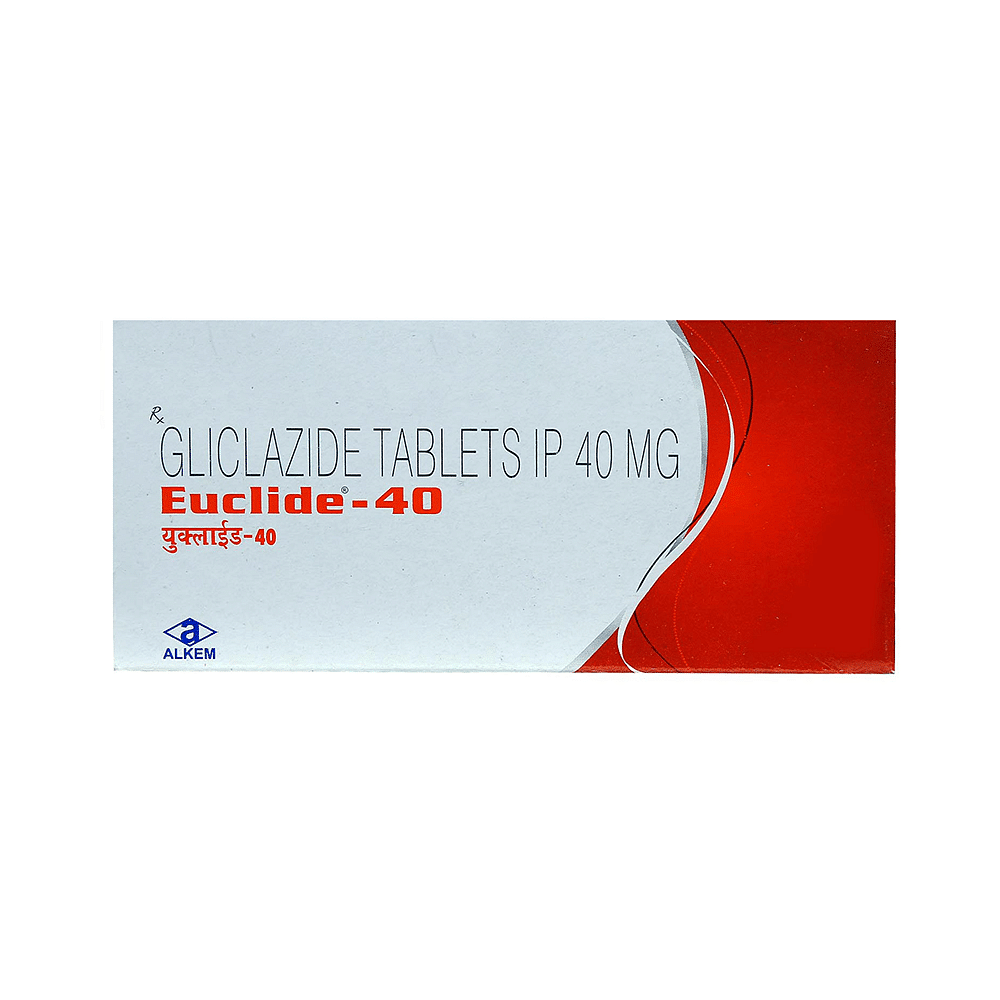
Euclide 40 Tablet

Glicab 40mg Tablet

Avazide 40mg Tablet

Glypen 40mg Tablet

Semi Glyca 40mg Tablet
Frequently asked questions
What is the recommended timing for taking Gliva 40mg Tablet?
Take Gliva 40mg Tablet exactly as instructed by your doctor, ideally before meals or with breakfast. Research suggests that taking it 30 minutes before breakfast may be particularly effective in controlling post-meal blood sugar levels. If you are prescribed to take it once daily, take it with a glass of water in the morning with breakfast.
Is Gliva 40mg Tablet the same as metformin?
No, Gliva 40mg Tablet is not the same as metformin. Although both medications are used to treat type 2 diabetes, they work differently to reduce sugar levels. Gliva 40mg Tablet increases insulin secretion by the pancreas, whereas metformin improves the functioning and effectiveness of existing insulin in the body.
Can I take metformin and Gliva 40mg Tablet together?
Yes, you can take Gliva 40mg Tablet and metformin together, but only if prescribed by your doctor. Your doctor may have recommended this combination to control your blood sugar levels. However, taking both medications together may increase the risk of low blood sugar, which can occur if you miss a meal, exercise excessively, or take it with insulin. Always follow your doctor's instructions carefully to avoid complications.
Is Gliva 40mg Tablet harmful to my kidneys?
Gliva 40mg Tablet is generally safe for individuals with normal kidney function. However, if you have a history of kidney problems, it is essential to inform your doctor before starting treatment. This is because Gliva 40mg Tablet is primarily excreted by the kidneys, and your doctor may need to adjust the dosage or monitor your kidney function closely. If you have kidney problems, you will typically be started on a lower dose.


